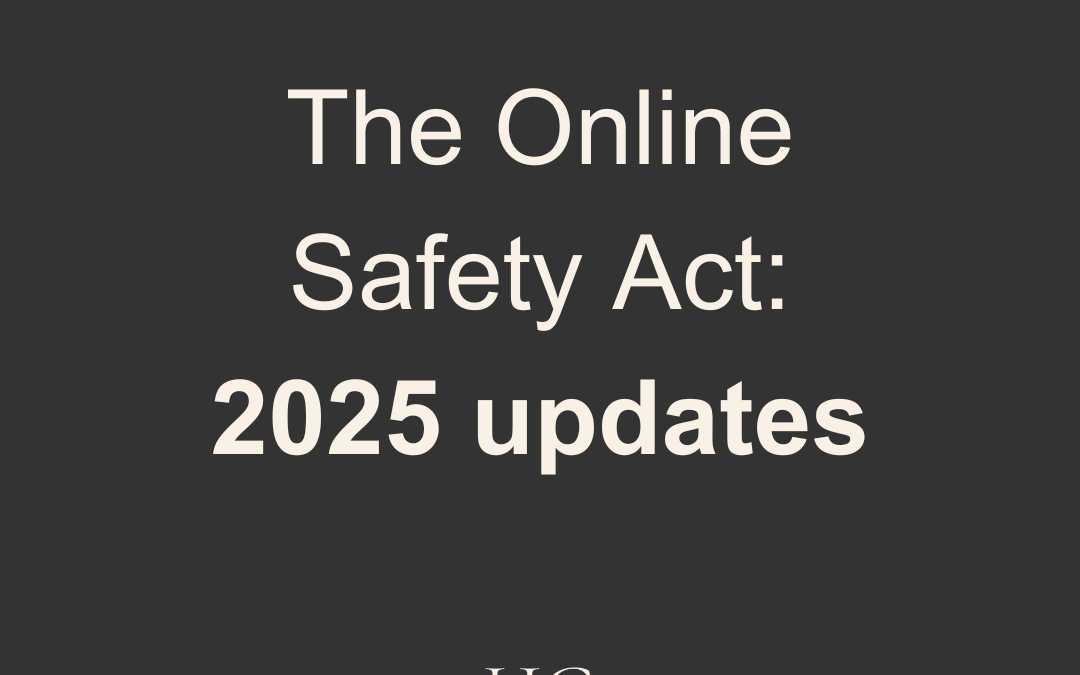Online Safety Act 2023: What Healthcare Businesses Need to Know for 2025
Online Safety Act 2023: What Healthcare Businesses Need to Know for 2025
The Online Safety Act 2023 is bringing significant changes in 2025 that will impact businesses operating online. If your website, app, or platform provides health-related content, patient forums, or digital support communities, these new regulations could affect you.
Why Does the Online Safety Act Matter to Healthcare Businesses?
The Act introduces new legal responsibilities for businesses that allow user interactions, discussions, or content sharing. The goal is to reduce harm online, protect children, and increase transparency, while also addressing misinformation, online abuse, and harmful content.
Healthcare businesses have a unique responsibility to ensure patient safety, particularly when it comes to misinformation, mental health content, and safeguarding vulnerable users.
Major Shifts Impacting Healthcare Businesses in 2025
1. Stronger Protections for Children (Spring–Summer 2025)
If your online platform is likely to be accessed by children, you must take steps to prevent them from encountering harmful content. This includes content related to:
• Self-harm and suicide
• Eating disorders
• Misinformation about health or treatments
By April 2025, healthcare platforms must complete a Children’s Access Assessment to determine whether children are using their service and apply appropriate protections.
By Summer 2025, the full child safety regime will be in effect, meaning platforms must proactively mitigate risks and comply with new codes of practice.
2. Tackling Online Abuse Targeting Women & Girls
Research shows that much of the most harmful online abuse disproportionately affects women and girls. The Act requires platforms to remove content related to:
• Harassment and stalking
• Coercive or controlling behaviour
• Extreme pornography
• Intimate image abuse
By the end of 2025, Ofcom will publish finalised guidance to help platforms implement effective protections for women and girls. Healthcare platforms should review their community guidelines and moderation policies to ensure compliance.
3. New Rules on Health Misinformation & Disinformation
Misleading health content can be harmful, especially when it influences treatment decisions, vaccine uptake, or mental health support. Under the Act:
• Platforms must remove illegal misinformation related to health (e.g., false claims that could cause harm).
• If a platform is accessed by children, it must protect them from harmful misinformation.
• Category 1 platforms (the largest social media and content-sharing sites) must enforce their own policies on misinformation or face penalties.
An advisory committee on disinformation will meet in April 2025 to guide policy changes, meaning further regulations could be introduced for healthcare platforms.
4. Cyberflashing & Epilepsy Trolling Are Now Criminal Offences
Since January 2024, several criminal offences have come into force, including:
• Encouraging or assisting self-harm
• Cyberflashing (sending unwanted explicit images)
• Sending false information intended to cause harm
• Threatening communications
• Epilepsy trolling (sending flashing images to trigger seizures)
Healthcare businesses that operate online communities or messaging features must ensure they have robust reporting and moderation processes to tackle these offences.
What Happens If Businesses Do Not Comply?
Ofcom, the UK’s online safety regulator, has been granted extensive enforcement powers. Companies that fail to comply could face:
• Fines up to £18 million or 10 percent of global revenue
• Criminal action against senior managers if they ignore enforcement notices
• Severe business disruption, including advertisers, payment providers, and internet services cutting ties with non-compliant platforms
How Can Healthcare Businesses Prepare?
• Review your online content and moderation policies – Ensure you have processes to remove harmful or misleading health information.
• Assess whether children are accessing your platform – If so, take steps to protect them from harmful content.
• Implement reporting mechanisms for abuse and harmful content – Platforms should allow users to report harmful behaviour easily.
• Stay informed about upcoming Ofcom guidance – Regulations will evolve throughout 2025, so businesses must keep up with new requirements.
Final Thoughts
For healthcare businesses operating online, the Online Safety Act 2023 is a major shift in how digital platforms are regulated. Ensuring compliance now will not only protect your business from penalties but also build trust with your audience—especially in an industry where credibility, patient safety, and accurate information are critical.

